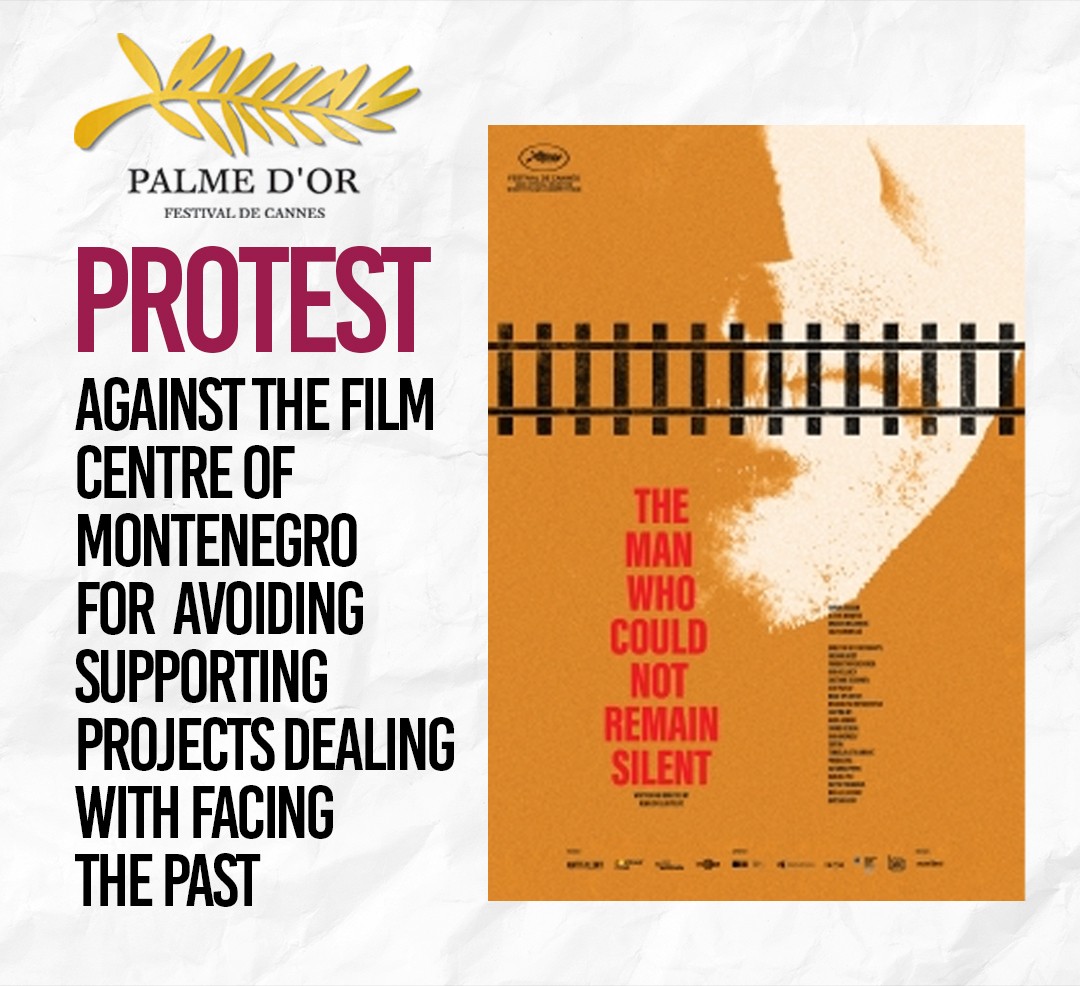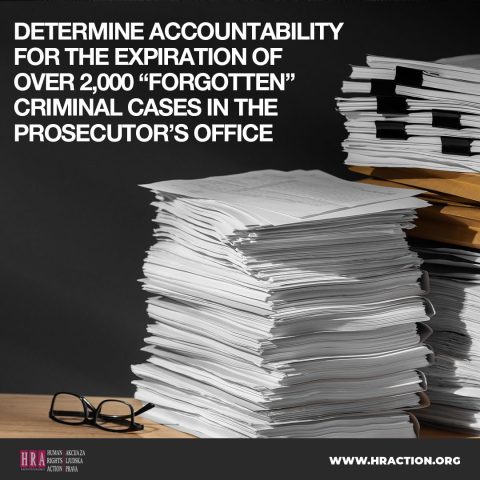
SOLVING THE MURDER OF DUŠKO JOVANOVIĆ IS A REQUIREMENT FOR ADMISSION TO THE EUROPEAN UNION
27/05/2024
Protest against the Film Centre of Montenegro for avoiding supporting projects dealing with facing the past
01/06/2024DETERMINE ACCOUNTABILITY FOR THE EXPIRATION OF OVER 2,000 “FORGOTTEN” CRIMINAL CASES IN THE PROSECUTOR’S OFFICE

HRA demands the determination of responsibility for the inaction of the state prosecution in numerous cases over a period of several years, which led to the expiration of at least 2,208 cases, of which as many as 1,958 or 90% of the cases are in the Basic State Prosecution in Podgorica. Murders, severe thefts, robberies, serious bodily injuries, and torture will remain unpunished due to the widespread failure of the leaders in the state prosecution.
The Secretariat of the Prosecutorial Council noted that 2,208 cases have expired in Montenegro’s state prosecutor’s offices, of which 1,958 cases are in the Basic State Prosecutor’s Office in Podgorica (90%). The rest of the cases are in the Basic State Prosecutor’s Office in Rožaje (132), Cetinje (46), Kolašin (46), the Higher State Prosecutor’s Office in Podgorica (7), Bar (11), Nikšić (6), the Higher State Prosecutor’s Office in Bijelo Polje (1), and the Special State Prosecutor’s Office (1).
The majority consist of cases of criminal acts of theft (532), aggravated theft (567), robbery (113), causing public danger (96), illegal possession of weapons (64), forgery of documents (81), endangering security (40), grievous bodily harm (24), torture (2), with an expired case of murder (2) also recorded at the Higher Prosecution in Podgorica. (See the table in Montenegrin available here)
These are cases marked “Ktn” which denote cases where the perpetrator of the criminal offense is unknown and where state prosecutors are responsible for conducting investigative actions in cooperation with the police (Article 16 of the Law on State Prosecutors and Article 44 of the Law on Criminal Procedure).
It is noteworthy that the head of the Basic State Prosecutor’s Office in Podgorica, Duško Milanović, informed the Prosecutorial Council in October last year about numerous “Ktn” cases that had been archived for years and had not been assigned to prosecutors for action.
The Prosecutorial Council then requested all state prosecutor’s offices to submit a report on unprocessed cases within 60 days, including a list of cases, the names of the responsible prosecutors, and the dates when the cases were assigned to them. The reports were reviewed by the Prosecutorial Council on March 14, 2024, after the deadline for submitting the reports was extended.
Based on the reports, the Prosecutorial Council concluded that the information should be forwarded to the Supreme State Prosecutor’s Office for further action: “The Prosecutorial Council does not have the authority to initiate disciplinary proceedings, this authority lies with the heads of state prosecutor’s offices and the Supreme State Prosecutor if they determine that there are grounds for initiating disciplinary proceedings.”
According to the Law on State Prosecutors, a proposal for establishing the disciplinary responsibility of a prosecutor can be submitted by their immediate superior, the head of the next higher state prosecutor’s office, the Supreme State Prosecutor, the Minister of Justice, as well as the Commission for Monitoring the implementation of the Code of Ethics, whose members are from the ranks of the Prosecutorial Council.
However, the HRA believes that the scale of the oversight as well as the extent of the harmful consequences require considering the criminal responsibility of the relevant heads for criminal offenses against official duty, which may also result from corruption.
Impartial and thorough handling of this case by the state prosecutor’s office is of utmost importance for strengthening the integrity and public trust in its work, for establishing the rule of law, and for preventing such serious oversights from occurring in the future.







 English
English